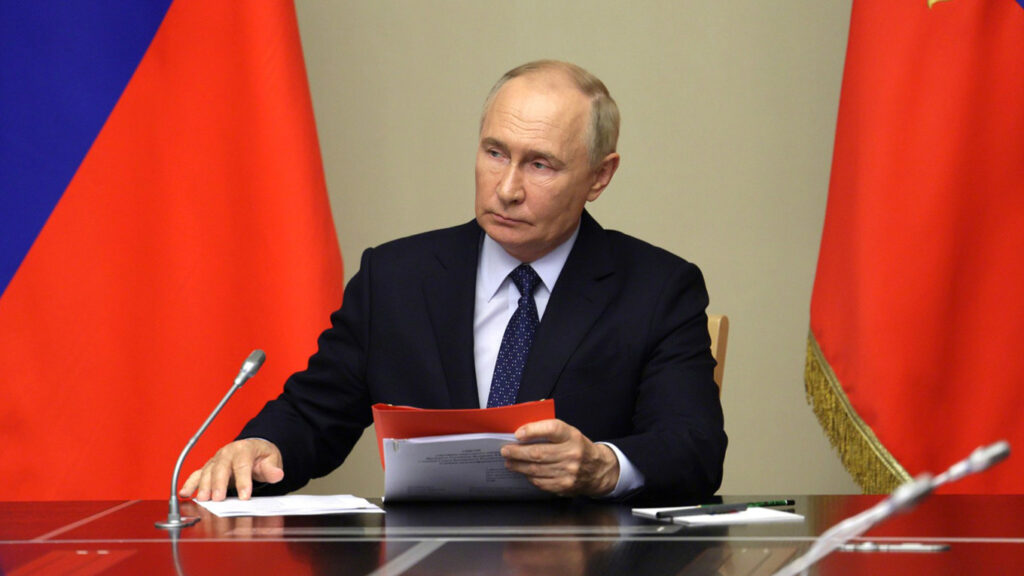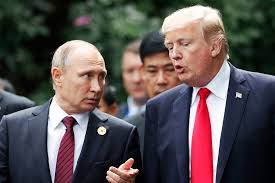Russian President Vladimir Putin has expressed growing concern over distortions in Russia’s wartime economy, just as U.S. President Donald Trump has renewed calls for resolving the Ukraine conflict. Sources familiar with the situation say discussions about potential negotiations are gaining traction within the Kremlin.

Russia’s economy, bolstered by oil, gas, and mineral exports, has maintained growth over the past two years despite numerous rounds of Western sanctions imposed after the 2022 invasion of Ukraine. However, labor shortages and rising interest rates aimed at controlling inflation have strained domestic activity in recent months. Military spending, now at record levels, has further accelerated inflationary pressures.
This economic strain has contributed to a growing belief among some Russian elites that a negotiated settlement to the war may be necessary. Two sources familiar with Kremlin discussions said this perspective is influencing internal debates.
Trump, who resumed office earlier this week, has pledged to swiftly address the Ukraine conflict, which he described as Europe’s most devastating crisis since World War II. Trump has suggested implementing additional sanctions and tariffs on Russia if talks stall, warning that the Russian economy faces “big trouble.” Despite this, Kremlin officials said no formal proposals for negotiations have been received from the United States.

Oleg Vyugin, former deputy chairman of Russia’s Central Bank, told reporters that economic pressures are pushing Russia toward diplomacy. “The risks of economic distortions are rising as military and defense spending increase,” Vyugin said.
Sources familiar with internal Kremlin deliberations emphasized that Putin’s concerns about the economy are shaping discussions about the war’s future. Despite this, Putin maintains that Russia’s territorial gains in Ukraine must be acknowledged and that Kyiv’s aspirations to join NATO be dropped as prerequisites for any peace settlement.
Russia’s economic growth, which outpaced the European Union and the United States in 2023 and 2024, is projected to slow to under 1.5% this year, according to the International Monetary Fund. Inflation, now nearing double digits, has prompted the Central Bank to hike interest rates to 21%. These high rates have strained businesses and driven up wages amid labor shortages.
Putin has openly acknowledged the economic challenges, describing them as “problematic factors” but insisting that the country’s economy remains stable. “There are problems, but these problems affect almost all nations,” Kremlin spokesperson Dmitry Peskov said.
Defense spending, which accounts for 6.3% of Russia’s GDP this year, has reached post-Soviet highs, contributing to inflation and putting pressure on non-military sectors. Businesses have also faced higher tax burdens aimed at reducing fiscal deficits.
Central Bank Governor Elvira Nabiullina has faced criticism over high interest rates but retains Putin’s trust, sources say. Nabiullina has dismissed allegations of caving to political pressure and insists the central bank’s decisions prioritize long-term stability.
Despite the economic challenges, Putin believes that Russia’s key war objectives have been met, including securing land corridors to Crimea and weakening Ukraine’s military capabilities. Kremlin insiders noted that while Putin is open to negotiations, he remains committed to achieving Russia’s strategic goals.
As Trump prepares to engage with Putin, U.S. sanctions targeting Russia’s oil and gas revenues, imposed during the final days of Joe Biden’s presidency, are expected to play a critical role in shaping the talks. The sanctions are intended to apply additional economic pressure on Moscow, with the goal of expediting diplomatic resolutions.
“President Trump is focused on ending this brutal war through diplomacy,” White House National Security Council spokesperson Brian Hughes said. However, Trump’s advisers have tempered his earlier claims that the war could be resolved “in a day.”


